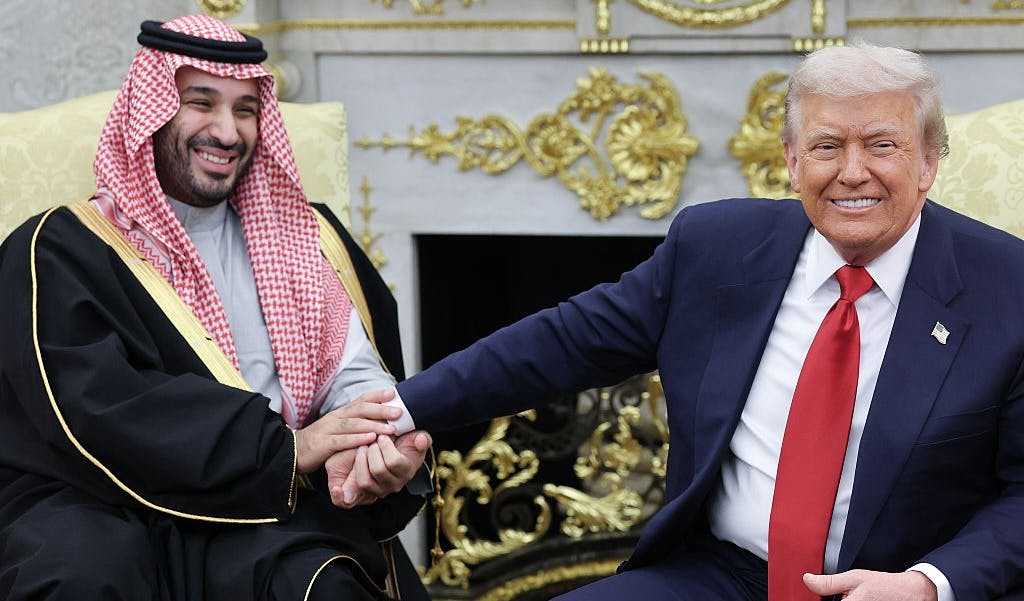
www.dailywire.com
Trump Officially Designates Saudi Arabia A ‘Major’ Ally Of United States
The Trump administration is designating Saudi Arabia a major non-NATO ally, strengthening economic and military ties between Washington and Riyadh, the president announced on Tuesday.
President Donald Trump announced the designation while Saudi Crown Prince Mohammed bin Salman visited the White House this week. Salman’s visit was received with many of the trappings of a state visit, though the event lacked the official status as Salman’s father is the actual head of the Saudi state.
“We’re taking our military cooperation to even greater heights by formally designating Saudi Arabia as a major non-NATO ally, which is something that is very important to them,” said Trump, before adding that Washington and Riyadh will enter into “a historic strategic defense agreement, which we just signed a little while ago.”
The announcement comes a day after the president said that he intends to allow Saudi Arabia to purchase F-35 stealth fighter planes from the United States.
“I am planning on doing that,” the president said. “They want to buy them. They’ve been a great ally.”
Salman offered promises to Trump, as well. Earlier on Tuesday, the crown prince said that Saudi Arabia intends to increase its pledge to invest in the United States from $600 billion to “almost $1 trillion.” The investment would be nearly equal to the entirety of Saudi Arabia’s sovereign wealth fund, according to The New York Times.
Trump has moved to strengthen ties between Washington and Riyadh after the Biden administration’s effort to distance itself from the Saudis over the death of journalist Jamal Khashoggi and other controversies. The Trump administration has prioritized the relationship with Riyadh, seeking its cooperation on issues such as gas production and the Abraham Accords.
The Saudis have signaled interest in joining the landmark foreign policy achievement of Trump’s tenure in office, the Abraham Accords, and normalizing relations with Israel. Riyadh has made it firmly understood, though, that it cannot normalize relations with Jerusalem until a pathway to a two-state solution with the Palestinian people is secure.
Saudi Arabia was one of a coalition of Arab states that backed the Trump-brokered peace and ceasefire agreement between Israel and Hamas. The ceasefire agreement, if it holds, provides a pathway to end the war in Gaza and sets goals and parameters for a Palestinian state to eventually be built. Some experts have expressed concern over Washington’s growing ties with Riyadh, especially over the Trump administration’s decision to share highly-prized military assets such as the F-35 with the Saudis. Saudi Arabia has a defense agreement with China, and some experts have said that the Saudi government may share the technology with Beijing, according to Politico.










